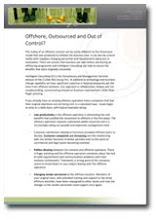Written by Richard Roberts (Employee Engagement Specialist and Employer Branding Expert).
You might recall an advertising campaign from a few years back. It was to encourage people to take up teaching - using the headline “No one forgets a good teacher” with famous figures describing the impact inspiring teachers made on their school days. It was a hugely emotive campaign - we can all remember a good teacher and the positive effect they had on our motivation, confidence and future development. After all, aren’t teachers our first experience of ‘people’ managers?
Fast-forward to the world of work and I think there are strong parallels between good teachers - and good line managers. I am often asked ”Rich, what is the one thing we can do that would have the biggest impact on engaging our people?” It’s a tough one to answer - as so many factors influence engagement - however I usually suggest they invest time and energy in up-skilling managers to be motivating and great ‘people’ managers.
Looking back at my career, the times I was the most engaged (and disengaged!) relate to how I was being managed. Dan Pink’s recent book ‘Drive - the surprising truth about what really motivates us’ outlines a wealth of research that looks at what really gets us up in the morning to come to work.
He discusses having autonomy over what we do on a day to day basis in our jobs and becoming an expert in what we do - both of which your line manager has a direct influence on. You can watch his video on the topic here. This reminds me of one of the best manager’s I worked for at Virgin Mobile. His style represents what I think are the main characteristics of a great line manager - the traits you remember and want to take with you. They are:
Fast-forward to the world of work and I think there are strong parallels between good teachers - and good line managers. I am often asked ”Rich, what is the one thing we can do that would have the biggest impact on engaging our people?” It’s a tough one to answer - as so many factors influence engagement - however I usually suggest they invest time and energy in up-skilling managers to be motivating and great ‘people’ managers.
Looking back at my career, the times I was the most engaged (and disengaged!) relate to how I was being managed. Dan Pink’s recent book ‘Drive - the surprising truth about what really motivates us’ outlines a wealth of research that looks at what really gets us up in the morning to come to work.
He discusses having autonomy over what we do on a day to day basis in our jobs and becoming an expert in what we do - both of which your line manager has a direct influence on. You can watch his video on the topic here. This reminds me of one of the best manager’s I worked for at Virgin Mobile. His style represents what I think are the main characteristics of a great line manager - the traits you remember and want to take with you. They are:
- Recognising my strengths and enabling me to play to them. He knew what I was good at and he knew what I was not good at - but did not make this an issue or something that would hinder my career. Like a good teacher, he saw where my potential was and encouraged my development in these areas.
- Being really good at giving feedback and giving me advice on what I could do to develop. This made me feel motivated to improve rather than feeling I was being told off. This is a real skill.
- Having the ability to step back and let me get on with my role - but also being there if I needed him. For example, I used to come up with lots of ‘off the wall’ engagement ideas and despite his look of bewilderment he let me run with them. He did minimise the risk by saying “Go and pilot that in that area - if it goes horribly wrong you can always say it was a pilot”.
One of my favourite quotes is from Jack Welsh who said of leaders “give your managers the tools and then get out of the way”. For me, these tools go beyond the obvious requirements of training and development - they mean offering support and guidance, giving inspiration and demonstrating trust - in short, recognising the potential to achieve that’s within all of us. Of course in the end it is up to the individual to do this and to quote an old Chinese proverb “Teachers open the door but you must enter by yourself”. This is actually what your manager should do.
Richard Roberts is passionate about helping organisations create engaged, inspired and productive teams with a positive, can do, values based culture. He set up en:Rich HR (www.enrich-hr.co.uk) in 2009 following twenty plus years in HR roles, including ten years with Virgin Mobile.
Richard Roberts is passionate about helping organisations create engaged, inspired and productive teams with a positive, can do, values based culture. He set up en:Rich HR (www.enrich-hr.co.uk) in 2009 following twenty plus years in HR roles, including ten years with Virgin Mobile.










